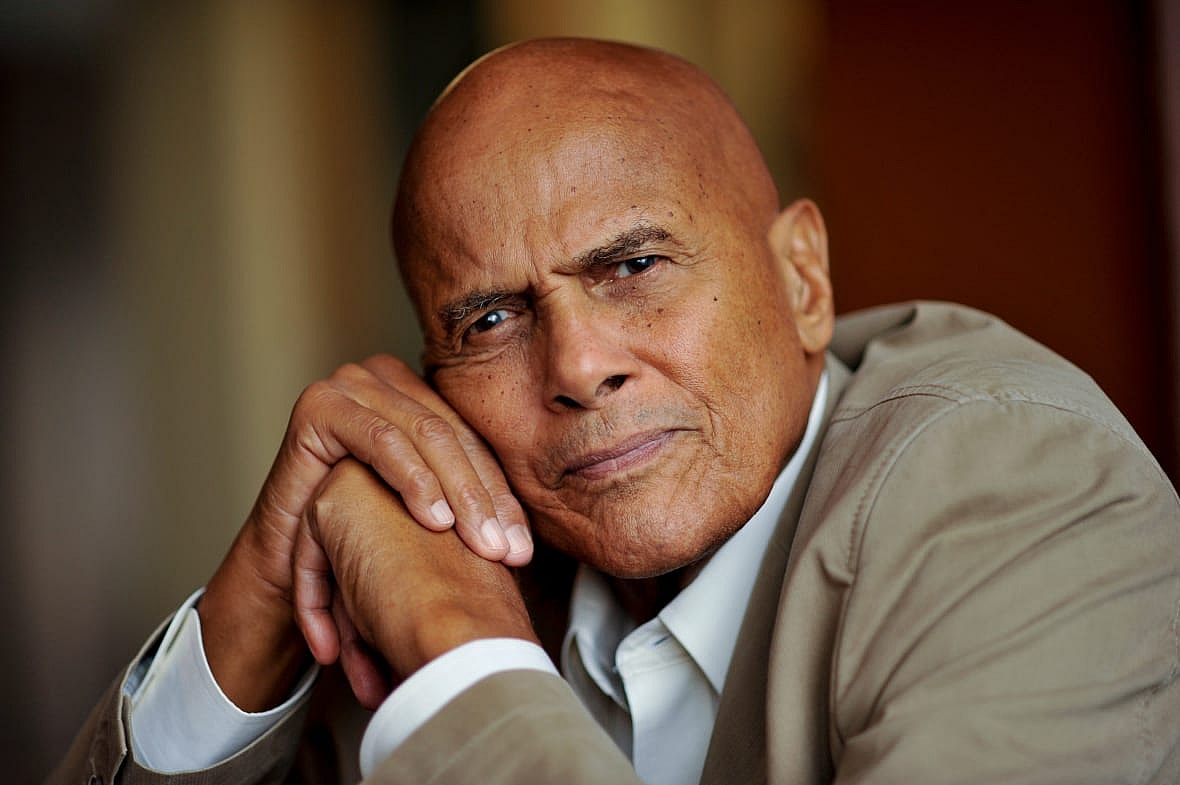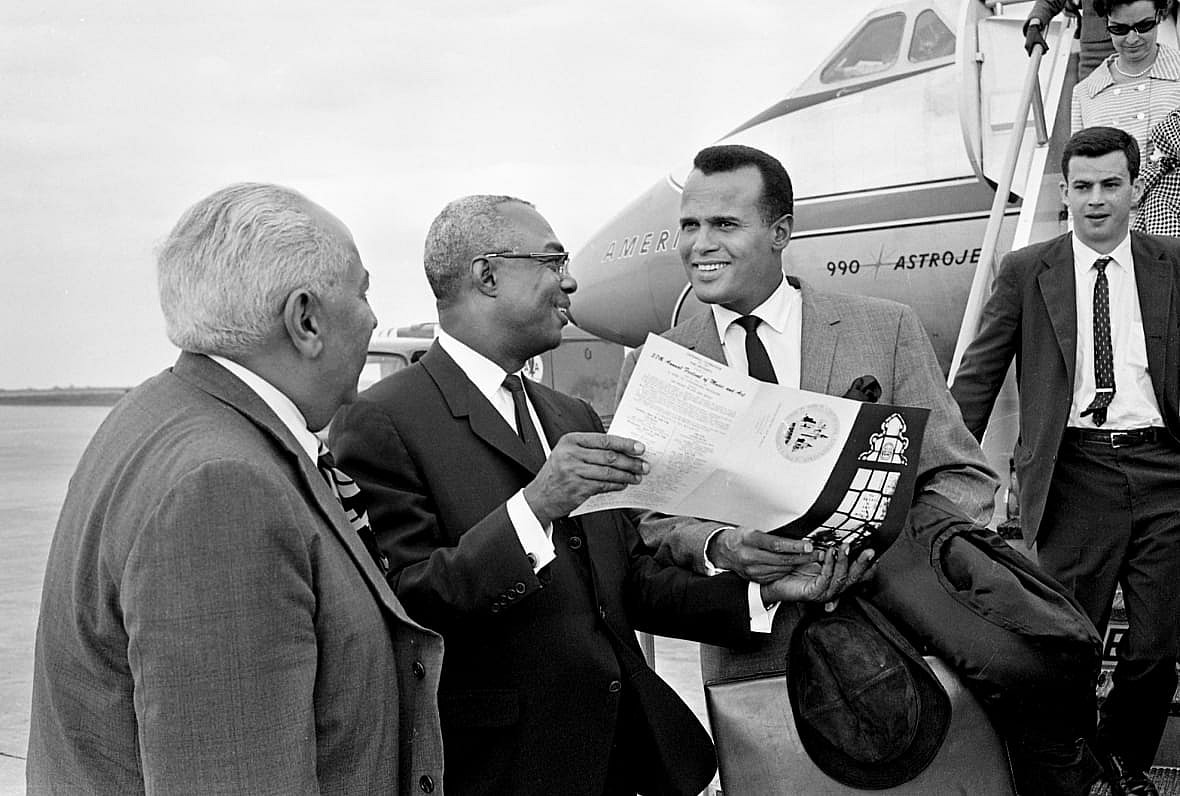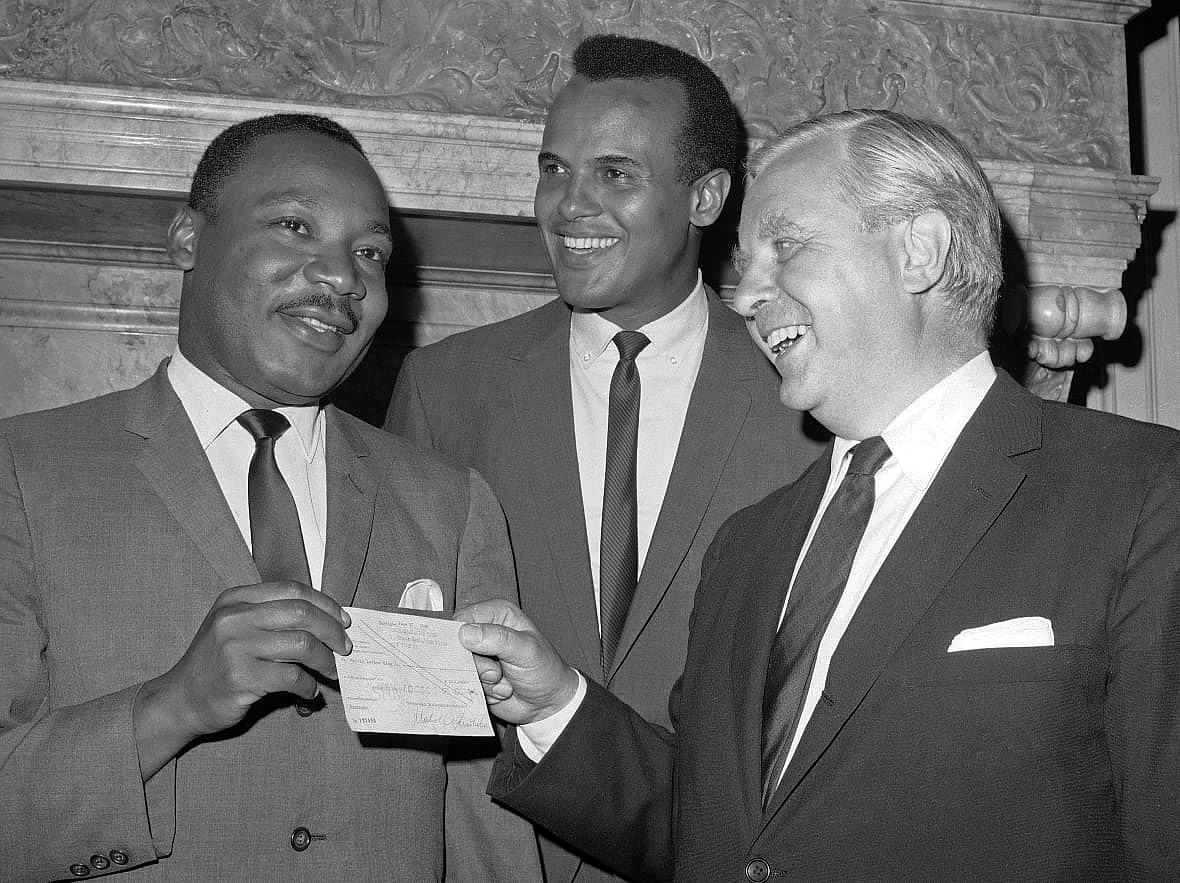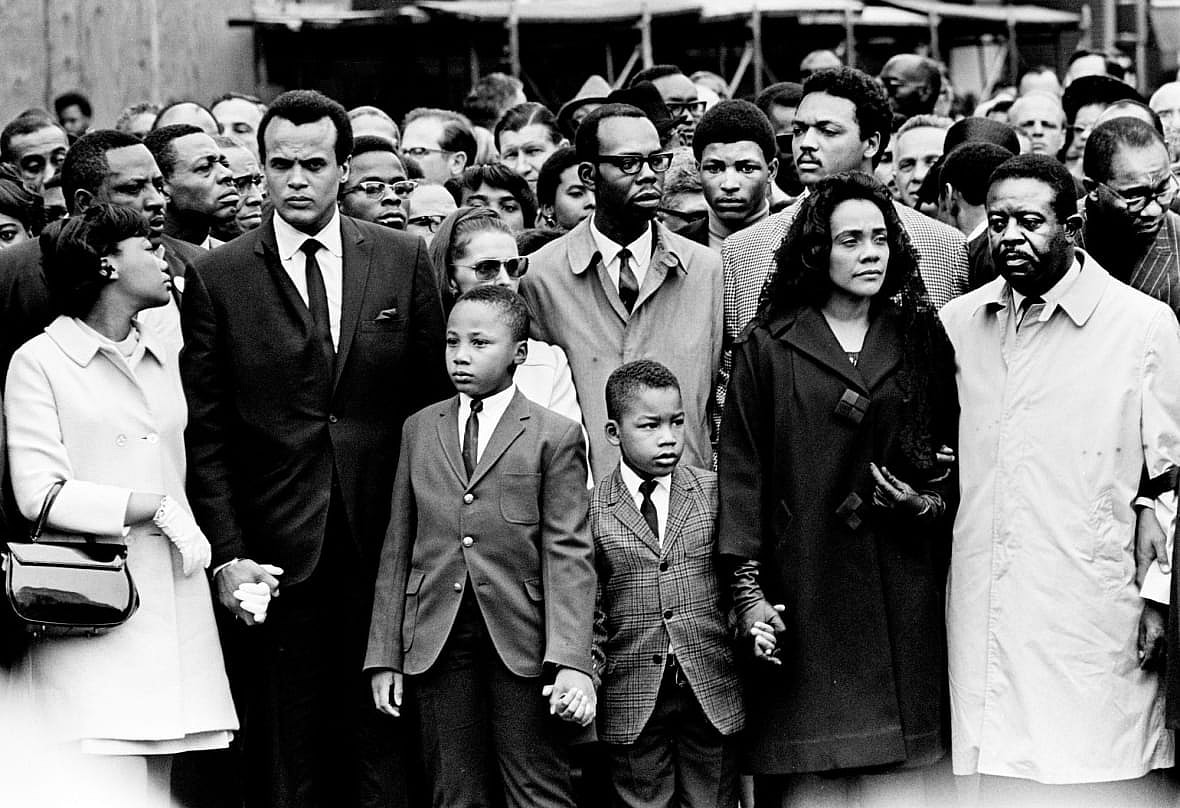Prolific artist and fearless civil rights activist, Harry Belafonte never minced words when it came to challenging perceptions of race, social justice and pushing humanity to “make the world a little better.”
“I am a man who perceives life in a certain way, a man who rejects things that defecate on humankind, who rejects anything that will not give people room for dissent,” he once said.
A warrior at heart who seamlessly combined soulful performances in film and music with a fearless sensibility in matters of race and human rights, Belafonte died on Tuesday at age 96.

Belafonte was born in New York City to immigrant parents on March 1, 1927. His father, a Royal Navy chef, was from Martinique; his mother, a housekeeper, hailed from Jamaica. Both parents had racially mixed backgrounds. In Arnold Shaw’s biography, “Belafonte,” the performer talked about his family’s makeup and the influence it had on him as a child.
“If you could see my whole family congregated together, you would see every tonality of color, from the darkest black, like my Uncle Hyne, to the ruddiest white, like my Uncle Eric, a Scotsman,” he said.
Belafonte lived in New York until he was 9 when his mother moved him and his brother to her native country to protect them from Harlem’s harsh, Depression-era streets. He attended Jamaica’s private British boarding schools, which commonly used caning to discipline.
In Jamaica, he wasn’t always treated well by his lighter-skinned relatives, yet he found a way to embrace his new home, which had a major influence on him.
“I still have the impression of an environment that sang. Nature sang and the people sang, too,” Belafonte said in Shaw’s biography. “The streets of Kingston constantly rang with the songs of piping peddlers or politicians drumming up votes in the lifting singsong of the island. I loved it.”
Belafonte returned to New York at age 13 and would leave high school to join the Navy in 1944. On his return from World War II, he studied acting in the city while performing at the American Negro Theatre with Sidney Poitier, who was a janitor and drama student. Belafonte was a stagehand.
Over the next eight decades, the two would form a bond closer than brothers, working together in various films and fighting for civil rights. (Poitier passed away in January 2022 at age 94.)
“For over 80 years, Sidney and I laughed, cried and made as much mischief as we could,” Belafonte said in a statement following Poitier’s death. “He was truly my brother and partner in trying to make this world a little better. He certainly made mine a whole lot better.”

Belafonte paid for his acting classes by singing in cabarets and nightclubs. Thanks to his soft but husky, melodic voice, his singing career quickly blossomed, landing him appearances in 1949 at New York’s famed Royal Roost and Village Vanguard clubs.
He signed his first recording contract with RCA Victor in 1952. In 1955, Belafonte recorded his breakthrough album, “Calypso” — the first record to sell more than 1 million copies — which introduced Caribbean sounds to mainstream audiences. The album featured what would become perhaps his best-known recording, the “Banana Boat Song,” also known by its popular call, “Day-O.”
With his handsome, magnetic on-screen presence, Belafonte landed a variety of strong leading roles, including “Bright Road” (1953) and “Carmen Jones” (1954), the latter a Black, modernized version of the opera, “Carmen.” (Belafonte’s voice, however, was deemed unsuitable and was dubbed by an opera singer.) In both films, he starred opposite Dorothy Dandridge. He pushed the envelope with his performance in “Island in the Sun” (1957), which features a brief affair between his and Joan Fontaine’s character. He starred in and produced Robert Wise’s “Odds Against Tomorrow” (1959), portraying a bank robber who reluctantly teams with a racist white partner, played by Robert Ryan.
One of television’s first black producers, Belafonte won an Emmy for 1959’s “Tonight With Belafonte.” He also won a Tony Award for Best Supporting Actor in “John Murray Anderson’s Almanac.” But he was dissatisfied with many of the roles he was offered and frustrated with Hollywood throughout his career. (He turned down the part of Porgy in Otto Preminger’s “Porgy and Bess” because of its stereotyping of Black people.) He abandoned film for music in the 1960s until 1972 when he played alongside Poitier in “Buck and the Preacher.” He also starred in Poitier’s “Uptown Saturday Night” (1974).
After Belafonte was given Kennedy Center Honors for lifetime achievement in the performing arts in 1989, he told the Ottawa Citizen: “I couldn’t help thinking how much of my life had been spent at odds with these people, with the establishment, and here they were honoring me.”

For most of his career, Belafonte focused on using his stardom to put the spotlight on racial prejudice and injustice. He stood side by side with close friend Dr. Martin Luther King Jr. and other civil rights leaders. He was on the board of directors of the Southern Christian Leadership Conference and helped organize the 1963 March on Washington. He was also chair of the memorial fund in honor of King.
Belafonte was one of the organizers of the Grammy Award-winning song, “We Are the World,“ which also led to the formation of the USA for Africa foundation. In 1987, he received an appointment to UNICEF as a goodwill ambassador. He was also involved in the anti-apartheid movement and many other humanitarian efforts in Africa. Africare presented him with the Bishop John T. Walker Distinguished Humanitarian Service Award in 2002 for his work on the Continent.
Belafonte remained outspoken throughout his life. His left-of-center politics got perhaps the greatest attention in 2002 when he compared President George W. Bush’s Secretary of State Colin Powell to a house slave during a radio interview. In 2006, as part of a delegation that included actor Danny Glover and scholar Cornel West, he met with Venezuelan President Hugo Chavez — a staunch Bush critic — and referred to Bush as “the greatest terrorist in the world.”

Of former President Barack Obama, Belafonte said in a 2009 interview on English Al Jazeera that the election of the country’s first black president didn’t erase the problems of racism in the U.S., and that the president had played a minimal role in generating an open and honest discussion on the subject. In the aftermath of the 2010 Haiti earthquake, Belafonte, along with Glover and the Rev. Jesse Jackson, signed a letter demanding that the U.S. focus on sending aid to that country instead of deploying the military.
The NAACP awarded Belafonte the Spingarn Medal in 2013. During his acceptance speech, he spoke on gun control in America. He also acknowledged previous recipients of the award who fought and used their voice “to remedy the ills of the nation” and urged Black artists to follow suit.
Belafonte is survived by his wife, Julie Robinson, and four children: Adrienne and Shari, his two daughters from his first marriage to Marguerite Byrd as well as David and Gina, his children with Robinson.

Monée Fields-White is an award-winning writer and journalist based in Los Angeles. She has produced a broad spectrum of stories on a national and global scale for leading publications and nonprofit organizations in the four largest markets—Washington, D.C., New York, Chicago and Los Angeles. She can be found on Twitter and LinkedIn.
TheGrio is FREE on your TV via Apple TV, Amazon Fire, Roku and Android TV. Also, please download theGrio mobile apps today!

